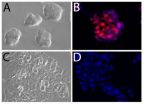(Press-News.org) Patients with Parkinson's, medics and carers have identified the top ten priorities for research into the management of the condition in a study by the University of East Anglia and Parkinson's UK.
Commissioned by Parkinson's UK, people with direct and indirect personal experience of the condition worked together to identify crucial gaps in the existing evidence to address everyday practicalities in the management of the complexities of Parkinson's. Patients stated that the overarching research aspiration was an effective cure for Parkinson's but whilst waiting for this more research was needed into the management of the condition.
Top of the list, which was narrowed down from a list of 94 uncertainties, was the need to identify what treatments help reduce balance problems and falls in people with Parkinson's.
This was followed in second place by questioning what approaches are helpful for reducing stress and anxiety in patients, and what treatments help reduce involuntary movements - a side effect of some medications - in third place.
Also outlined in the top ten research priorities for Parkinson's management, published today on BMJ Open, are better monitoring methods, improving sleep quality and the need to develop interventions specific to the different types of Parkinson's and the dementia that can be associated with Parkinson's.
Dr Katherine Deane, lead researcher from the University of East Anglia, said: "Ensuring that research is effective in addressing the needs of patients and the clinicians treating them is critically important, and the priorities will inform the research plans and funding from Parkinson's UK and hopefully other funders."
"The research agenda has been accused of being overly influenced by the pharmaceutical industry and of not addressing the questions about treatments that are of greatest importance to patients, their carers and clinicians. Research needs to focus on whether treatments are doing more harm than good, or whether one treatment is better than another, and ensure the outcomes reflect issues that have impact on the patient's wellbeing and participation.
"These priorities identify crucial gaps in the existing evidence to address everyday practicalities in the management of the complexities of Parkinson's, with an overarching research aspiration to work towards an effective cure for Parkinson's."
One thousand participants provided initial ideas on research uncertainties, which were narrowed down to 94 unique ideas, which 475 participants used to select their own top ten priority list. A final 26 top priorities were then examined by 27 stakeholders who agreed a final top 10. People with Parkinson's were in the majority in all of these groups.
Arthur Roach, Director of Research and Development at Parkinson's UK, said: "This study highlights the very important fact, sometimes overlooked, that for many people with Parkinson's the most troublesome problems are not the classical motor symptoms, but things like sleep, falls, anxiety and difficulties with thinking. Ensuring that research meets the needs of people with Parkinson's is key and we will be using this awareness to guide our research programme in the future."
The project was led by Parkinson's UK, with the University of East Anglia and the University of
Birmingham acting as academic partners. The James Lind Alliance provided an independent chair, advised on the methodology, and facilitated the process.
Overarching research aspiration: An effective cure for Parkinson's
The top ten research priorities for the management of Parkinson's:
What treatments are helpful for reducing balance problems and falls in people with Parkinson's?
What approaches are helpful for reducing stress and anxiety in people with Parkinson's?
What treatments are helpful for reducing dyskinesias (involuntary movements, which are a side effect of some medications) in people with Parkinson's?
Is it possible to identify different types of Parkinson's, eg, tremor dominant? And can we develop treatments to address these different types?
What best treats dementia in people with Parkinson's?
What best treats mild cognitive problems such as memory loss, lack of concentration, indecision and slowed thinking in people with Parkinson's?
What is the best method of monitoring a person with Parkinson's response to treatments?
What is helpful for improving the quality of sleep in people with Parkinson's?
What helps improve the dexterity (fine motor skills or coordination of small muscle movements) of people with Parkinson's so they can do up buttons, use computers, phones, remote controls etc?
What treatments are helpful in reducing urinary problems (urgency, irritable bladder, incontinence) in people with Parkinson's?
INFORMATION:
DALLAS - Dec. 15, 2014 - UT Southwestern Medical Center neurology researchers have identified an important cell signaling mechanism that plays an important role in brain cancer and may provide a new therapeutic target.
Researchers found that this mechanism -- a type of signaling termed constitutive or non-canonical epidermal growth factor receptor (EGFR) signaling -- is highly active in glioblastomas, the most common type of adult brain cancer and a devastating disease with a poor prognosis.
When activated in cancer cells, it protects the tumor cells, making them more ...
In the same way as we now connect computers in networks through optical signals, it could also be possible to connect future quantum computers in a 'quantum internet'. The optical signals would then consist of individual light particles or photons. One prerequisite for a working quantum internet is control of the shape of these photons. Researchers at Eindhoven University of Technology (TU/e) and the FOM foundation have now succeeded for the first time in getting this control within the required short time. These findings are published today in Nature Communications.
Quantum ...
For decades, the mantra of electronics has been smaller, faster, cheaper.
Today, Stanford engineers add a fourth word - taller.
At a conference in San Francisco, a Stanford team will reveal how to build high-rise chips that could leapfrog the performance of the single-story logic and memory chips on today's circuit cards.
Those circuit cards are like busy cities in which logic chips compute and memory chips store data. But when the computer gets busy, the wires connecting logic and memory can get jammed.
The Stanford approach would end these jams by building layers ...
PEOPLE who have problems with numbers may be more likely to feel negative about bowel cancer screening, including fearing an abnormal result, while some think the test is disgusting or embarrassing, according to a Cancer Research UK supported study* published today (Monday) in the Journal of Health Psychology.
The researchers** sent information about bowel cancer screening to patients aged from 45 to 59 along with a questionnaire which assessed their numerical skills and attitudes to the screening test, which looks for blood in stool samples.
Almost 965 people - registered ...
E-cigarette use among teenagers is growing in the U.S., and Hawaii teens take up e-cigarette use at higher rates than their mainland counterparts, a new study by University of Hawaii Cancer Center researchers has found.
The findings come as e-cigarettes grow in popularity and the Food and Drug Administration is considering how to regulate their sale. Some public health officials are concerned that e-cigarettes may be recruiting a new generation of young cigarette smokers who otherwise might not take up smoking at all, and the study's results bolster this position.
Data ...
While serious infections can be transmitted from donated organs, the risk of passing Ebola virus disease from an organ donor to a recipient is extremely small. In a new editorial published in the American Journal of Transplantation, experts explain how simple assessments of donors can help ensure that the organ supply is safe, while having little impact on the donor pool.
Despite screening all organ donors for infection, on rare occasions an organ donor will transmit an unexpected infection to a recipient. Because cases of Ebola virus disease have occurred in the United ...
Both positive and negative experiences influence how genetic variants affect the brain and thereby behaviour, according to a new study. "Evidence is accumulating to show that the effects of variants of many genes that are common in the population depend on environmental factors. Further, these genetic variants affect each other," explained Sheilagh Hodgins of the University of Montreal and its affiliated Institut Universitaire en Santé Mentale de Montréal. "We conducted a study to determine whether juvenile offending was associated with interactions between three ...
Baltimore MD-- We would not expect a baby to join a team or participate in social situations that require sophisticated communication. Yet, most developmental biologists have assumed that young cells, only recently born from stem cells and known as "progenitors," are already competent at inter-communication with other cells.
New research from Carnegie's Allan Spradling and postdoctoral fellow Ming-Chia Lee shows that infant cells have to go through a developmental process that involves specific genes before they can take part in the group interactions that underlie ...
TORONTO, ON - Consider the relationship between an air traffic controller and a pilot. The pilot gets the passengers to their destination, but the air traffic controller decides when the plane can take off and when it must wait. The same relationship plays out at the cellular level in animals, including humans. A region of an animal's genome - the controller - directs when a particular gene - the pilot - can perform its prescribed function.
A new study by cell and systems biologists at the University of Toronto (U of T) investigating stem cells in mice shows, for the ...
White adipose tissue stores excess calories as fat that can be released for use in other organs during fasting. Mammals also have small amounts of brown adipose tissue, which primarily acts as an effective fat burner for the production of heat. Now researchers from the University of Southern Denmark have uncovered the mechanism by which white fat cells from humans gets reprogrammed to become browner.
Browning of white adipose tissue increases the energy consumption of the body and therefore constitutes a potential strategy for future treatment of obesity. The challenge ...




